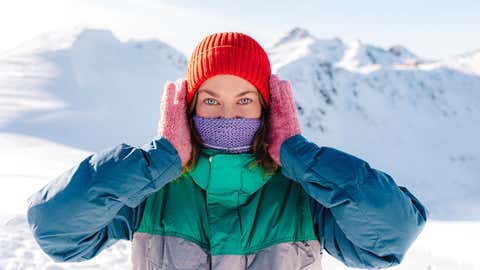By means of Bianca Barr
12 hours ago

Register for the morning newsletter To get weekday updates from the weather channel and our meteorologists.
If you can see your breath when you are outside in cold weather, you may want to pay attention to discomfort or a burning feeling in your lungs. It is common to feel this pain, but your body can adapt to the extreme temperatures, according to the Mayo Clinic.
Cold, dry air enters the lungs and causes irritation, which can lead to bronchospasm. That is when the airways become tighter and narrow and you might start to feel shortness of breath. For those people with asthma, dryness in the cold air can cause symptoms, according to the Allergy & asthma network.
Can freezing temperatures freeze your lungs?
Doctors say it is unlikely that your lungs will freeze in extremely cold temperatures. Our bodies can adapt to cold air while retaining a core temperature between 97 and 99 degrees, reports the Mayo Clinic.
Even in the coldest conditions, the air we breathe reaches the body temperature by the time it reaches our lungs, according to the American Lung Association.
How you can protect yourself


There are ways to protect your lung health in the winter, starting to control the air temperature when you breathe. An easy action is to wear a scarf around your mouth and nose to retain warmth and moisture.
Protect your lungs at great heights in the winter. Your body can adapt to lower air pressure and oxygen levels, but it will take a little longer than if you are at or near sea level.
Don’t forget to breathe through your nose where possible. The nose heats and moistens the air more efficiently than the mouth.
A slow drink hot water can help relieve the pain related to the burning sensation in the lungs.
If you have asthma, experts encourage you to try to spend time outside if you can, but be aware of breathing striggers. Also keep your asthma-controlling medicines in the neighborhood if you try outdoor activities in extremely cold weather. Finally, warm up before you enter the elements: a piece and a small movement in advance can help your lungs to function better in the cold.
Usually the burning sensation will disappear because your lungs adapt to the environment, but if you do not recover quickly after ending the activity and entering, you may want to consider contacting a doctor.



